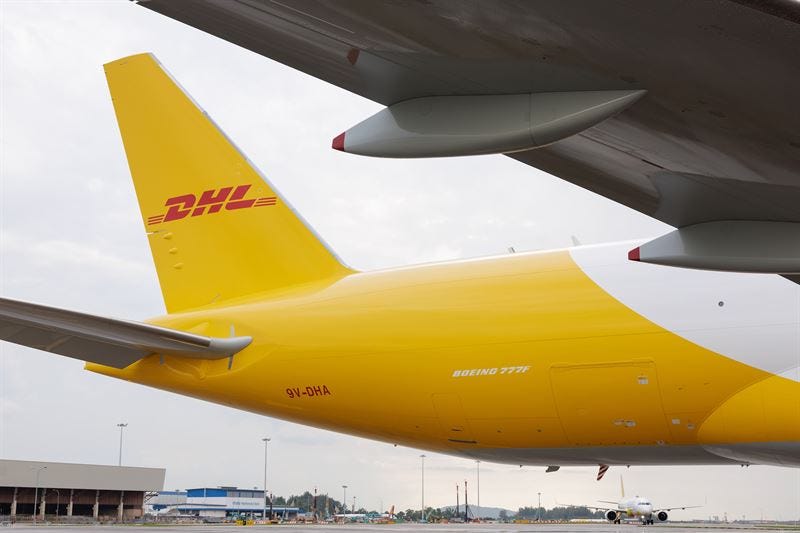#Sustainability20: Air France-KLM becomes the first airline group to join EU Flight Emissions Label scheme & more
Weekly Roundup - 18/07/25
Each Friday, we publish a round-up of the 20 most important stories on sustainable aviation. You can see previous editions of #Sustainability20 here.
Industry updates
The Science-Based Targets initiative (SBTi) has announced plans to finalise its new net-zero standard by the end of 2025, with a launch scheduled for early 2026.
Carbon credit supply crunch puts CORSIA compliance by airlines at risk, warns report – GreenAir News
A report by Sylvera warns airlines may face a CORSIA credit shortage, with only Guyana supplying eligible units. Prices could hit $60, costing the sector up to $5.2 billion, risking non-compliance without urgent action.
LanzaJet’s $200 million ethanol-to-jet fuel plant in Georgia, backed by US funding, is now set to begin operations in September 2025 after multiple delays. Once fully operational, it will produce 10 million gallons of SAF and renewable diesel annually.
Air France-KLM has become the first airline group to join the EU’s Flight Emissions Label (FEL) scheme, partnering with EASA to provide passengers with emissions data. The voluntary initiative aims to standardise emissions reporting and promote informed travel choices.
CLIMATE WATCH: Cleaner air in east Asia may have driven recent acceleration in global warming, new study indicates - The Conversation
A study has found that reduced air pollution in East Asia, particularly China, may have accelerated global warming by unmasking greenhouse gas effects, contributing to recent record temperatures.
Infrastructure and operational efficiencies
The Airports of Tomorrow initiative, in partnership with ACI World, has explored transforming airports into energy hubs in a new report, focusing on hydrogen integration to support aviation’s net-zero goals by 2050.
Moonware has partnered with Japan Airlines to trial its AI-powered HALO platform at Tokyo’s Haneda Airport, aiming to optimise ground operations through real-time visibility, task automation, and improved ramp team communication.
Sustainable Aviation Fuel (SAF)
According to Aaron Robinson, VP of SAF (US) at the International Airlines Group (IAG), SAF accounted for 0.21% of aviation fuel in 2024 (623K tonnes), with 54% coming from just three airlines: IAG, Air France-KLM, and DHL. European carriers led with 63% of total SAF use.
Shell Aviation, Accenture, and Amex GBT have expanded Avelia, their SAF ‘book-and-claim’ platform, to include multi-supplier integration and independent data hosting. The partners are also piloting a BYOS model to incorporate airlines’ external SAF purchases.
DHL Express has signed an agreement with Neste for 9.5 million litres of SAF to power flights from Singapore, marking one of the largest cargo industry SAF deals to date.
SeaO2, in collaboration with with TU Delft, Twente University, and NERA, has secured $2 million in funding from the TKI Energy and Industry program to develop e-SAF from seawater, renewable electricity, and captured carbon dioxide.
INA’s Rijeka Refinery has successfully produced Croatia’s first domestic SAF, alongside renewable diesel, from biogenic feedstocks in a pilot project. INA aims for continuous SAF supply by 2029 under the Renewable Energy Directive to aid aviation decarbonisation.
Moeve and Zaffra have agreed to assess e-SAF facility feasibility in Spain, aligning with ReFuelEU’s 2030 targets. The collaboration leverages Moeve’s green hydrogen project and Zaffra’s technology expertise.
Syzygy has selected Velocys’ technology for a Uruguay-based SAF plant converting dairy waste into jet fuel. The facility, set for 2027, will use renewable electricity and biogas.
Ecopetrol partners with Aerocivil to advance sustainable aviation fuel in Colombia – BioEnergy Times
Ecopetrol has partnered with Colombia’s Civil Aviation Authority to advance SAF research under the “SAF Vuela” programme, supporting the country’s emissions reduction goals.
New technology: Electric and Hydrogen
Vertical Aerospace has completed the first airport-to-airport piloted flight of its full-scale VX4 tilt-rotor eVTOL, designed for commercial use. The 17-mile flight took place from Cotswold Airport to RAF Fairford.
London Gatwick has hosted its first electric flight, a Pipistrel Velis Electro, as part of VINCI Airports’ sustainability tour promoting zero-emission aviation.
ZeroAvia and Horizon Aircraft have agreed to explore hydrogen-electric propulsion for the Cavorite X7 eVTOL, aiming to advance zero-emission regional air travel.
Tomark Proton has launched a €64.8 million EU-backed project to develop a hydrogen-powered VTOL aircraft, targeting a green revolution in regional transport.
Hydroplane has achieved flight-speed rotor tests using hydrogen fuel cells, advancing toward zero-emission vertical lift solutions for the US Army.
H55 has demonstrated its electric aircraft’s performance in Colorado’s high-density altitude conditions, showcasing reliable operation at 9,500ft density altitude and 36°C temperatures.






